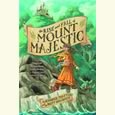The Royal Navy Confronts the Privateer Problem
In Dewey Lambdin’s latest installment of the Alan Lewrie series, it’s 1805, and Captain Lewrie prowls the coastline of the American Southeast in search of French and Spanish privateers
In Dewey Lambdin’s Reefs and Shoals, Captain Alan Lewrie leaves the warm bed of his latest mistress to take his frigate, the Reliant, from Portsmouth across the stormy North Atlantic to Bermuda. He picks up a smaller ship there as a start of a squadron, and pries two more away from the command of the lazy port captain in Nassau. The small squadron cruises the north coast of Spanish Cuba before heading up the Florida Keys. In the process, Lewrie captures a privateer in “Mayami Bay” before putting in to neutral American ports—Wilmington, Charleston, and Savannah. He renews old acquaintances and snoops: do any French or Spanish privateers do business there? Are any there now, masquerading as legitimate merchantmen? Who is supplying them and how?
 It’s 1805 and thus a complex business, thanks to the rules of war, to residual resentments left from the American revolutionary war, and to the elaborate social expectations of the day. But Captain Lewrie has little patience with the niceties of rank and diplomacy, and he’s not above trading insults in French with the captain of a suspected privateer that he is forbidden to touch in Charleston harbor. In fact, Captain Lewrie is a man’s man, appreciative of fine (and not so fine) ladies, a drinker of beer and American corn whiskey (when he can get it), unimpressed by his own rank, liked and respected by his officers and crew, and a shrewd and effective officer in his majesty’s service. True, he is sometimes high-handed and free-wheeling. He essentially maroons the crew of a captured privateer in the wilds of Florida, for example, rather than ferrying them to Nassau, which would have gotten in the way of what he is about. And he eventually does uncover and break open, in a fine river battle, the Savannah-based scheme that supports the region’s privateers, a major coup.
It’s 1805 and thus a complex business, thanks to the rules of war, to residual resentments left from the American revolutionary war, and to the elaborate social expectations of the day. But Captain Lewrie has little patience with the niceties of rank and diplomacy, and he’s not above trading insults in French with the captain of a suspected privateer that he is forbidden to touch in Charleston harbor. In fact, Captain Lewrie is a man’s man, appreciative of fine (and not so fine) ladies, a drinker of beer and American corn whiskey (when he can get it), unimpressed by his own rank, liked and respected by his officers and crew, and a shrewd and effective officer in his majesty’s service. True, he is sometimes high-handed and free-wheeling. He essentially maroons the crew of a captured privateer in the wilds of Florida, for example, rather than ferrying them to Nassau, which would have gotten in the way of what he is about. And he eventually does uncover and break open, in a fine river battle, the Savannah-based scheme that supports the region’s privateers, a major coup.
Like Westerns, Naval adventures in the time of wooden ships and iron men form a distinct literary genre. Nashville novelist Dewey Lambdin has mastered it, steeping himself in the intricate details of period naval technology, ships, rigging, navigation, shipboard life, food, drink, and the elaborate forms and rituals governing relations at all levels and ranks. He also has somehow heard the language of the time. While writers in other genres frown on the spelling-out of dialect, Lambdin employs phonetic spellings freely, as a necessary part of recreating the time and place. Yes, readers have to translate and plow through unfamiliar terms, words, and phrases (“Main clewgarnets and buntlines . . . spanker brails, weather main and mizzen cro’jack braces!”), but they will do so willingly to stay with the adventure as it unfolds, drawn in by the characters and action, whether or not all the details register.


